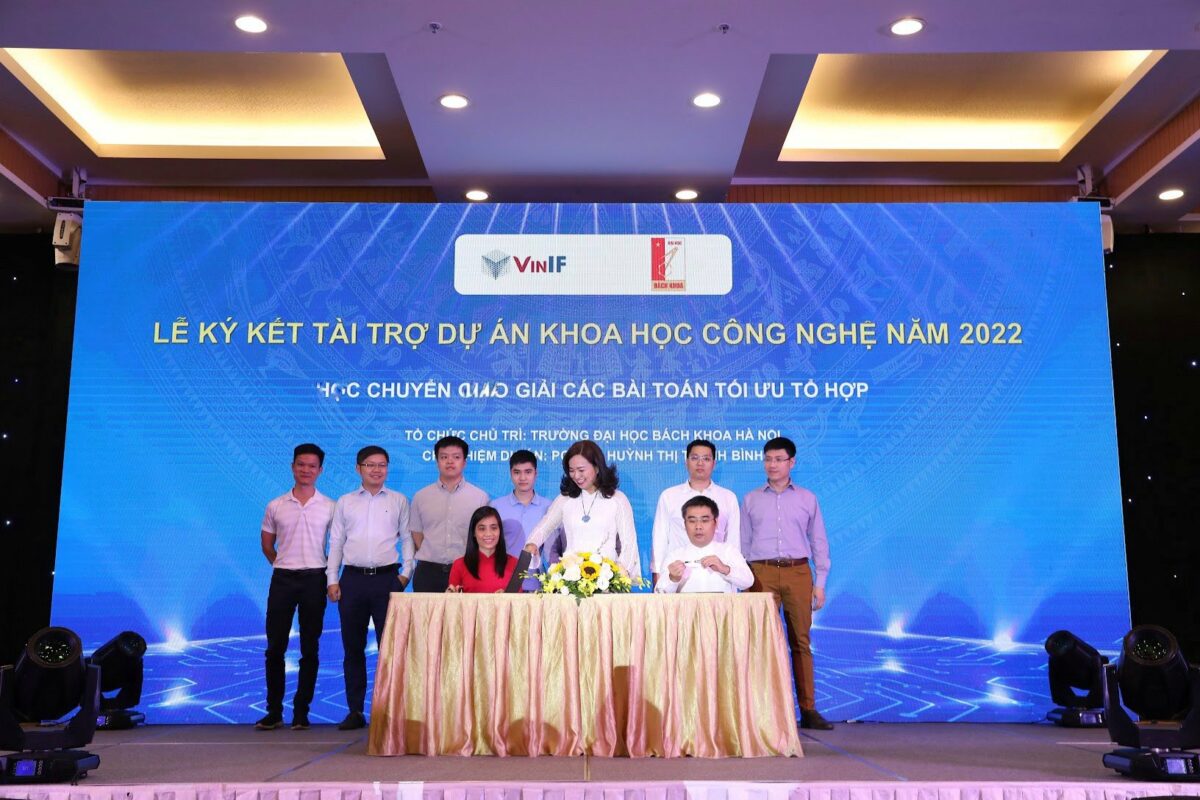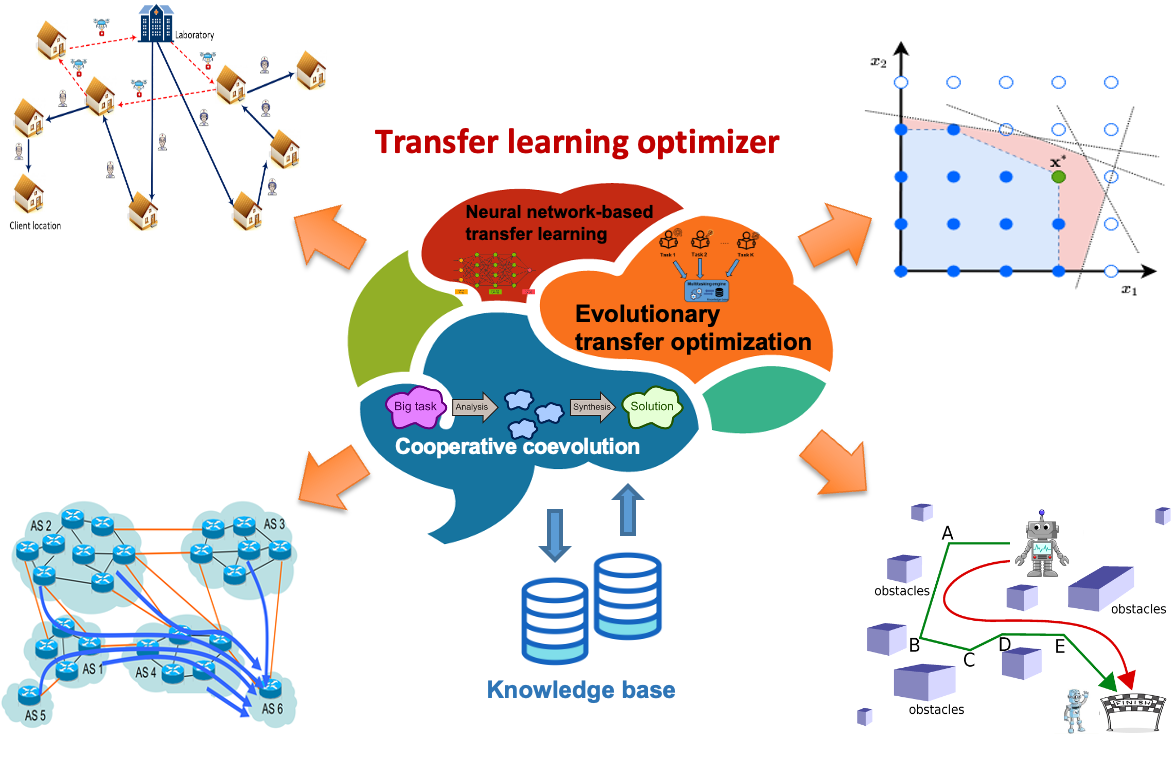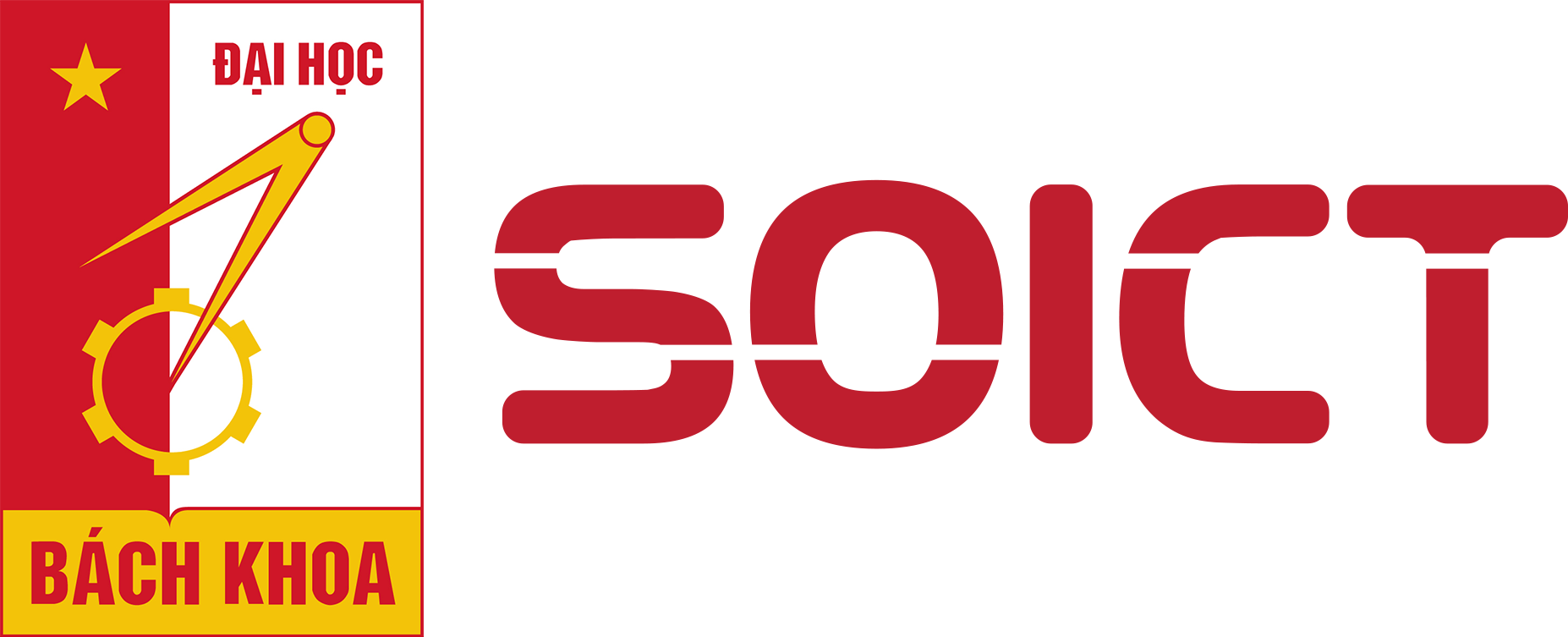Information
- PI: Assoc. Prof. Huynh Thanh Binh
- Time: 11/2022-10/2024
- Funding: Vingroup Innovation Foundation
- Code: VINIF.2022.DA183
- Main areas: Cooperative evolutionary algorithms, neural network-based transfer learning

Intro
There is a growing trend for humans to manage and execute various sophisticated tasks in modern society. Humans rarely tackle new problems from scratch, but knowledge from past experiences is leveraged for solving those new problems. Therefore, it is inevitable that new intelligent systems and algorithms are expected to achieve the same ability. Transfer learning is a technique that reuses knowledge gained from solving one problem to deal with different but related problems. For challenging real-world decision-making problems, transfer learning allows intelligent systems to find high-quality solutions promptly.

Currently, there are several forms of algorithmic knowledge transfer: evolutionary transfer optimization, transfer via cooperative evolution, and neural network-based transfer learning. Evolutionary transfer optimization utilizes the experiences of solving previous complex problems, then provides them to the evolutionary algorithm to solve the next task. Cooperative evolutionary algorithms harness the ability of different optimizers by designing collaborative mechanisms which enable solution/knowledge transfer among evolutionary algorithm variants. On the other hand, in neural network-based transfer learning, new neural networks are quickly trained by fine-tuning the previously trained networks for instantly learning new pattern recognition tasks. This research focuses on improving these transfer learning approaches for combinatorial optimization (CO) problems because of their ubiquitous applications in a wide range of engineering and business domains.
Objectives
1. Fundamental researches on transfer learning will be applied to solve CO problems.
We mainly focus on studying three significant advances in transfer learning algorithms: evolutionary transfer optimizations, transfer via cooperative evolutionary, and neural network-based transfer learning. This proposal aims:
- Evolutionary transfer optimization:
- Research evolution-based transfer algorithms and propose novel methods based on two approaches: implicit and explicit transfer to solve multiple optimization problems simultaneously.
- Develop novel techniques to measure the similarity between optimization problems and to control the knowledge transfer rate between them dynamically.
- Designing a novel simulation model for evolutionary transfer optimization, in which each task is considered as a request and the requests may arrive at different times.
- Transfer via cooperative evolutionary:
- Study cooperative coevolutionary algorithms.
- Propose cooperative evolutionary methods that incorporate better adaptive strategies to solve combinatorial optimization problems.
- Neural network-based transfer learning: Apply machine learning algorithms (reinforcement learning, imitation learning) with Graph Neural Network to improve traditional algorithms for combinatorial optimization problems.
- Apply the proposed algorithms to solve practical applications, namely scheduling and planning, logistics and transportation, network design, and other AI application domains.
2. Publish research works at high ranking journals (Q1), top-tier conferences (rank A).
3. Building a strong research group connecting domestic scientists, overseas Vietnamese scientists and leading professors in the field Evolutionary Computation, Machine Learning in the world.
4. Contribution in training master and PhD students.

